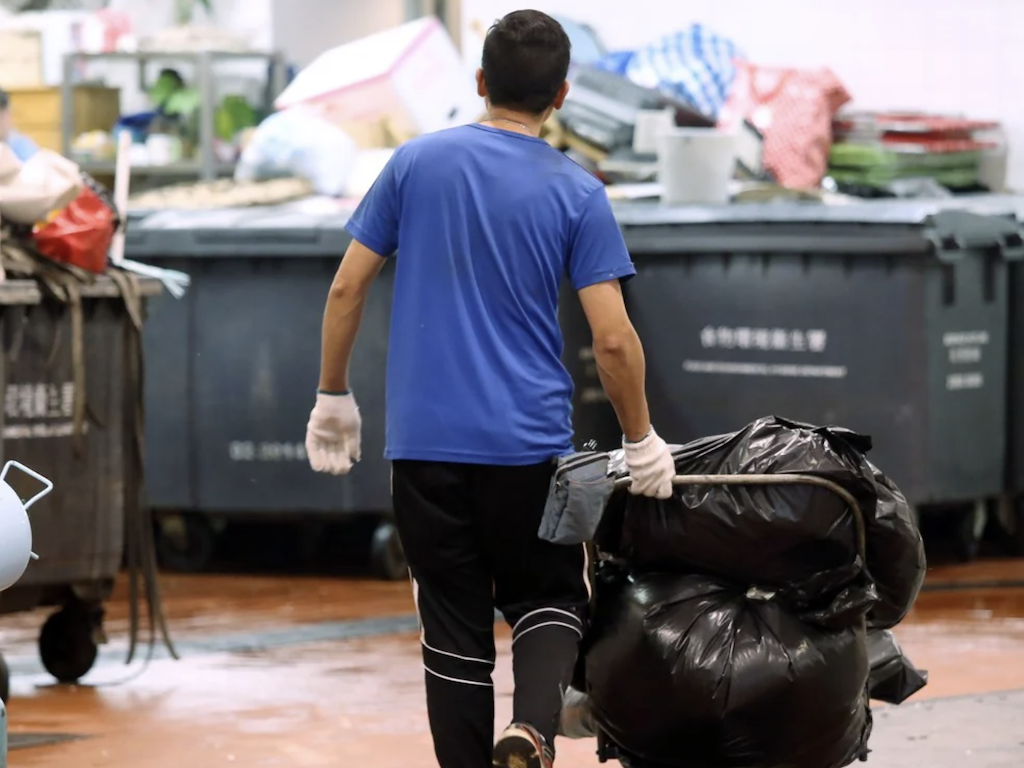3 Mins Read
A Legislative Council bills committee vetting the Hong Kong government’s proposed waste disposal levy has decided to discontinue scrutiny over the bill. The move effectively puts an end to years of work that would have introduced much-needed charges for municipal solid waste disposal as the waste crisis reaches new heights in the city. It comes after a recent investigation exposed Hong Kong’s abysmal recycling system whilst waste disposal rates per person climbs year-on-year.
This past Monday, a LegCo bills committee decided to halt scrutiny for a bill that would implement charges for municipal waste disposal, effectively putting an end to the hopes of anti-waste legislation in Hong Kong.
Under the proposed policy, households and businesses would pay a charge for their rubbish, either through purchasing special sized bags or paying based on the weight of the rubbish taken to disposal facilities. Such a scheme would have been a crucial part of relieving Hong Kong’s overflowing landfills and much-needed efforts to reduce the city’s greenhouse gas emissions.
Pro-establishment legislators said that there hadn’t been enough time for them to finish their work related to the bill before the end of the current LegCo term due in September, despite the fact that the policy had been planned for years. Other pro-establishment lawmakers had been filibustering the bill.
Hong Kong pro-democracy lawmakers said that due to the current political and social climate, it had become untenable to push forward the environmental bill that had originally begun discussions in November 2018.
Speaking to RTHK, Chu Hoi-dick of anti-establishment Council Front said that pan-democracy legislators, while having concerns about the feasibility of the levy, were disappointed that the bill has been scrapped due to pro-establishment filibustering and opposition to such a waste-charging scheme.
“Under this political atmosphere, it is a bit difficult for us to put forward this waste disposal charging. The pro-Beijing camp just brutally stopped the discussion…it is a pity, because it has been planned for years,” said Chu.
In a statement, the government said that its work on waste reduction and recycling will “not pause”, but recent work uncovering Hong Kong’s recycling system failure has shown that genuine action on the city’s waste crisis have fallen far off the mark, and will no doubt dampen public trust in the authorities’ environmental efforts.
Reporters at local news media HK01 recently revealed that plastic bottles collected in recycling bins at residential housing estates have been sent to landfills. Using plastic bottles wired with GPS trackers, the journalists located that out of 14 housing estates, both public and private, the plastic contents in recycling bins of 9 buildings were not being recycled.
Meanwhile, waste disposal rates have continued to rise year-on-year, creating tremendous pressure on Hong Kong’s landfills as well as fuelling waste incineration, which is responsible for even more carbon emissions and dangerous air pollution. Last year, EPD data showed that the average waste disposal rate per person in Hong Kong has reached the highest levels since records began in 1991.
In a press conference following the decision to scrap the waste-charging bill, Secretary for the Environment KS Wong gave practically no details about how the government plans to take action against the city’s waste and climate crisis.
Answering a reporter’s question about how the government hopes to move forward, Wong stated that “other waste reduction education campaigns” will be pushed to tackle the city’s severe environmental issues.
Lead image courtesy of SCMP / David Wong.




